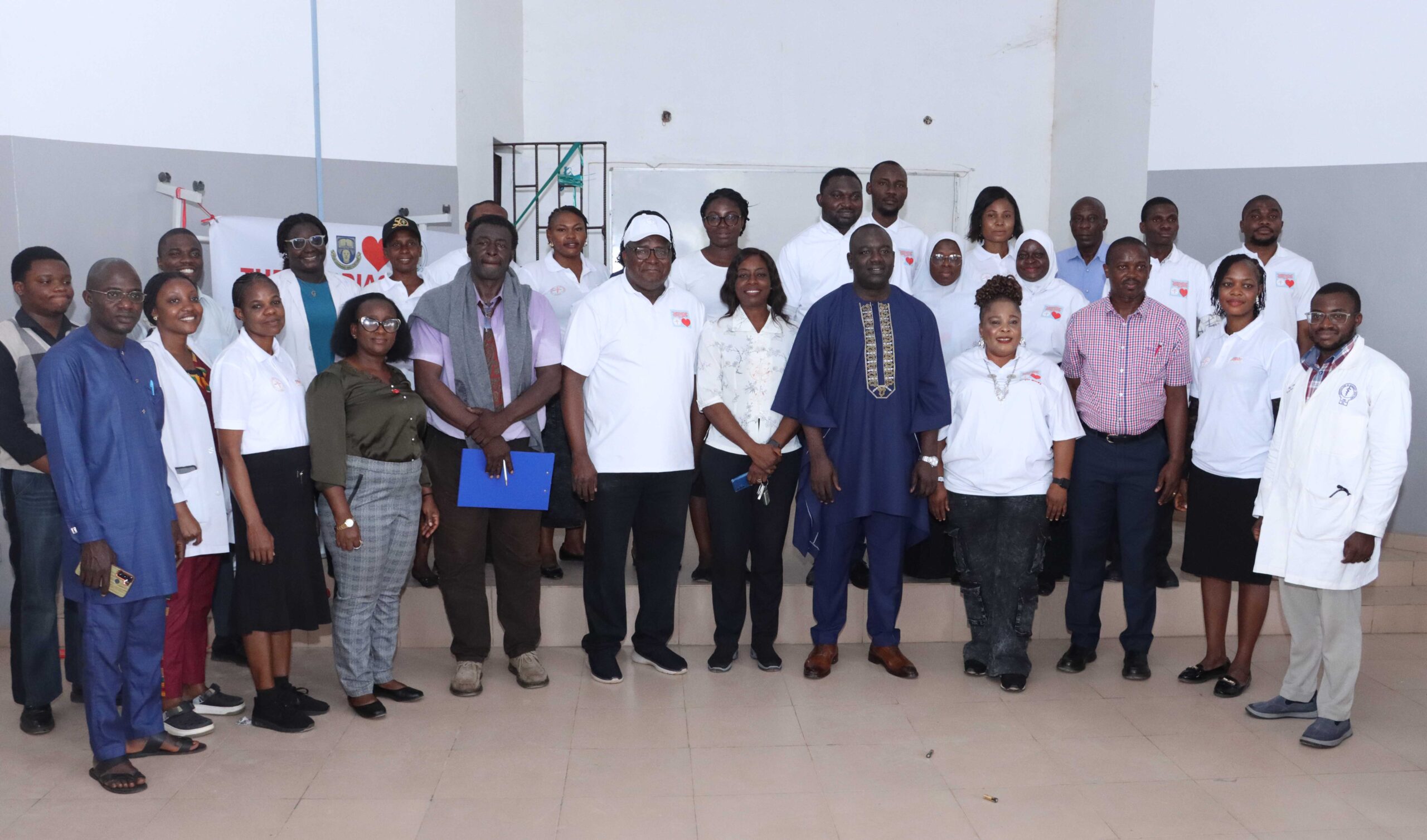In commemoration of World Heart Day 2025, celebrated annually across the globe, the Cardiac Care Unit of the Obafemi Awolowo University Teaching Hospitals Complex (OAUTHC), Ile-Ife, organised a healthcare talk on Monday, September 29, 2025, at the Clinical Students’ Lecture Theatre of the hospital.
The theme of this year’s celebration, “Don’t Miss a Beat”, focuses on preventive measures against premature deaths from cardiovascular diseases, promoting healthy lifestyle choices, and ensuring access to care.
In his opening remarks, the Head of Department and Chairman of the Organising Committee, Prof. Razak Adebayo, welcomed and appreciated everyone present. He noted that this year’s commemoration is an opportunity to ignite global conversations and engagements towards creating awareness by educating the community on ways to prevent heart disease, which is on the rise. He emphasised that the heart should beat regularly without irregularities or abnormalities. He further highlighted the need for regular check-ups, practising healthy lifestyle habits, and ensuring access to quality heart care.
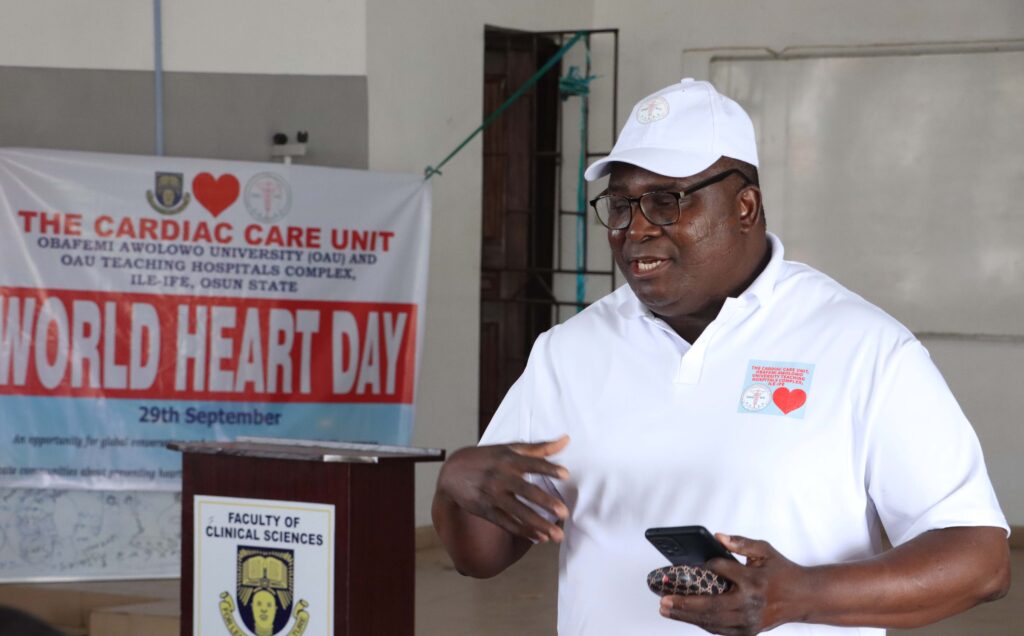
Representing the hospital management, the Physician in Charge of the Phase 4 Unit, Prof. Tade Ijarotimi, delivered the keynote address. She appreciated the participants and stressed that the heart, though a vital organ, is often neglected until something goes wrong in the body. She pointed out that cardiovascular diseases remain the leading cause of death globally, claiming millions of lives yearly. She described this year’s theme as a reminder that “now is the time to act.” Prof. Ijarotimi emphasised the importance of regular checks, knowing one’s numbers (such as blood pressure and blood sugar levels), avoiding alcohol, managing stress appropriately, and making small but powerful lifestyle choices. She concluded with the statement: “Every heartbeat is a gift from God, and every healthy choice we make daily adds strength to the rhythm of our heart.”
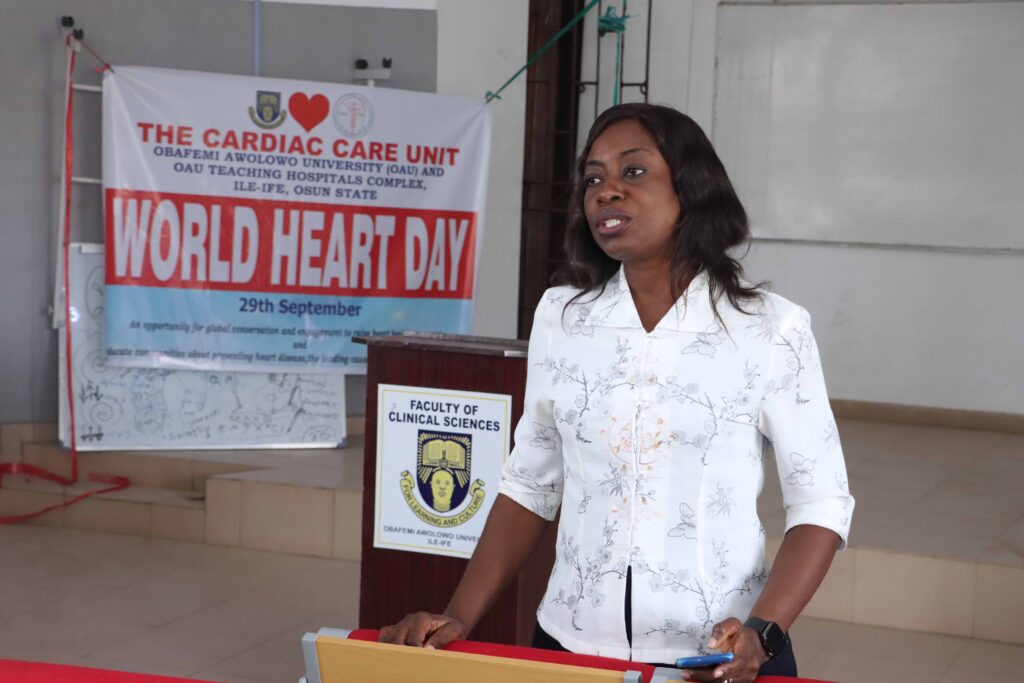
Delivering a lecture titled “Preventing Premature Death,” the Matron of the Unit, Nurse Mayokun Akinsete, stressed that nothing should interrupt cardiac health. She noted that preventive measures are crucial in reducing risks from vascular diseases, structural problems, and blood clots. According to her, prevention can be categorised into two groups—those with high blood pressure and those without. For people without high blood pressure, measures include monitoring blood pressure levels and knowing one’s numbers, eating healthy diets, engaging in exercise, and regular physical activity. For those with high blood pressure, she recommended avoiding rigorous exercises, managing stress, reducing alcohol intake, quitting smoking, and going for regular check-ups.
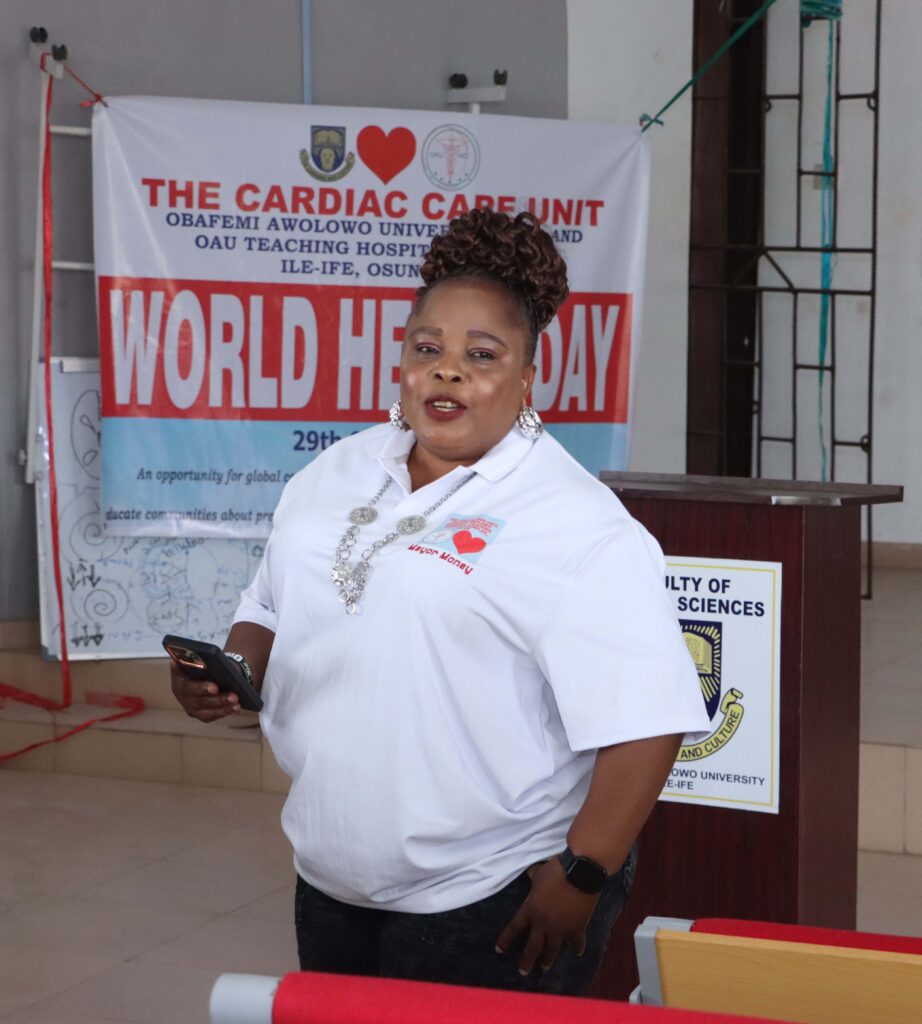
Also speaking at the event, Dr. Olumide Akinyele, a Consultant Cardiologist, emphasised the importance of stress management, noting that de-stressing enhances heart function. He advised that the heart thrives on grains such as rice, sorghum, and maize, and he encouraged at least 30 minutes of brisk walking five days a week. Similarly, Dr. Ayodeji Olorunfemi, a Senior Registrar in the unit, stressed the importance of ensuring access to quality heart care. He called for public health advocacy at all levels to create awareness, provide people with accurate information, and ensure affordable, subsidised healthcare services.
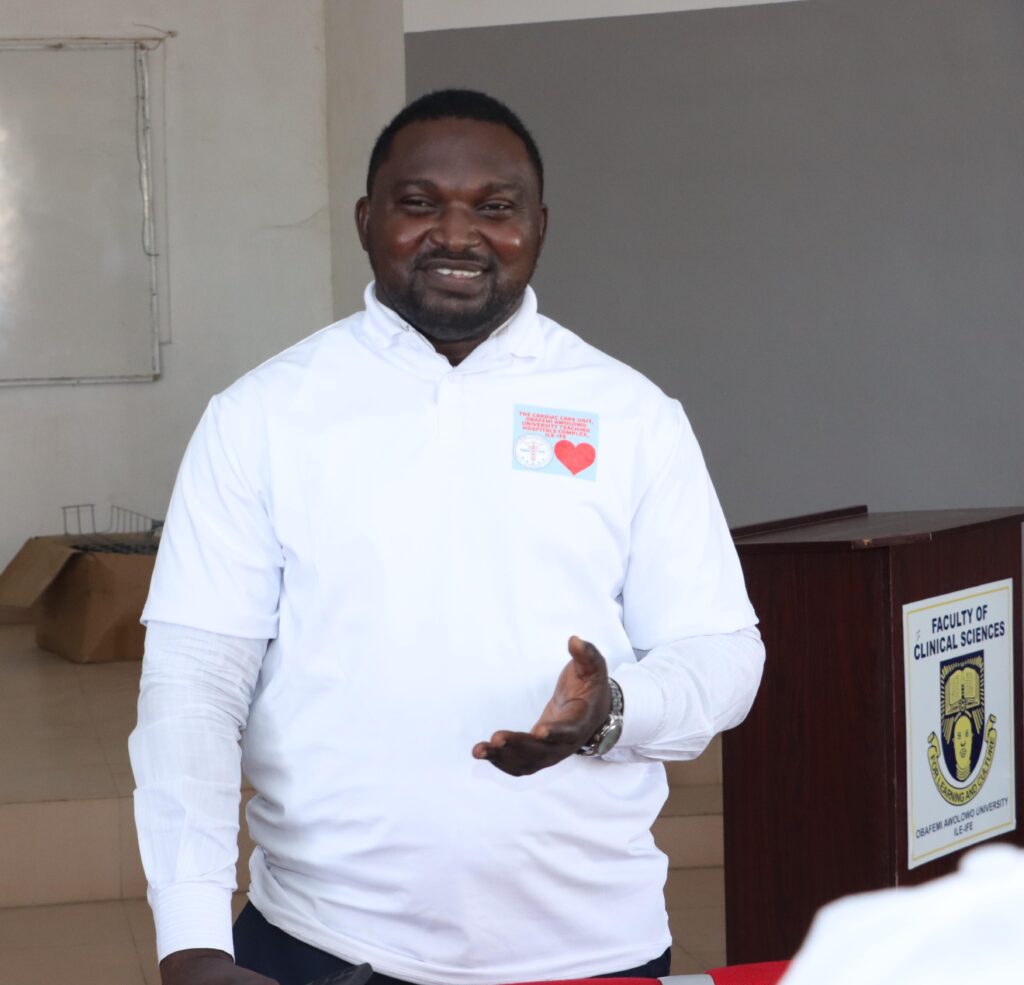
A foreign partner with the Unit and Chief Executive Officer of Assana Groupe, Mr. Waliou Ainin, highlighted the organisation’s objectives, including the construction of hospitals and mobile medical units, the organisation of medical missions and medical tourism programmes, and facilitation of medical equipment and pharmaceutical supplies to hospitals. He called for collaboration with OAUTHC to achieve robust, quality healthcare delivery that promotes heart health and ensures affordability.
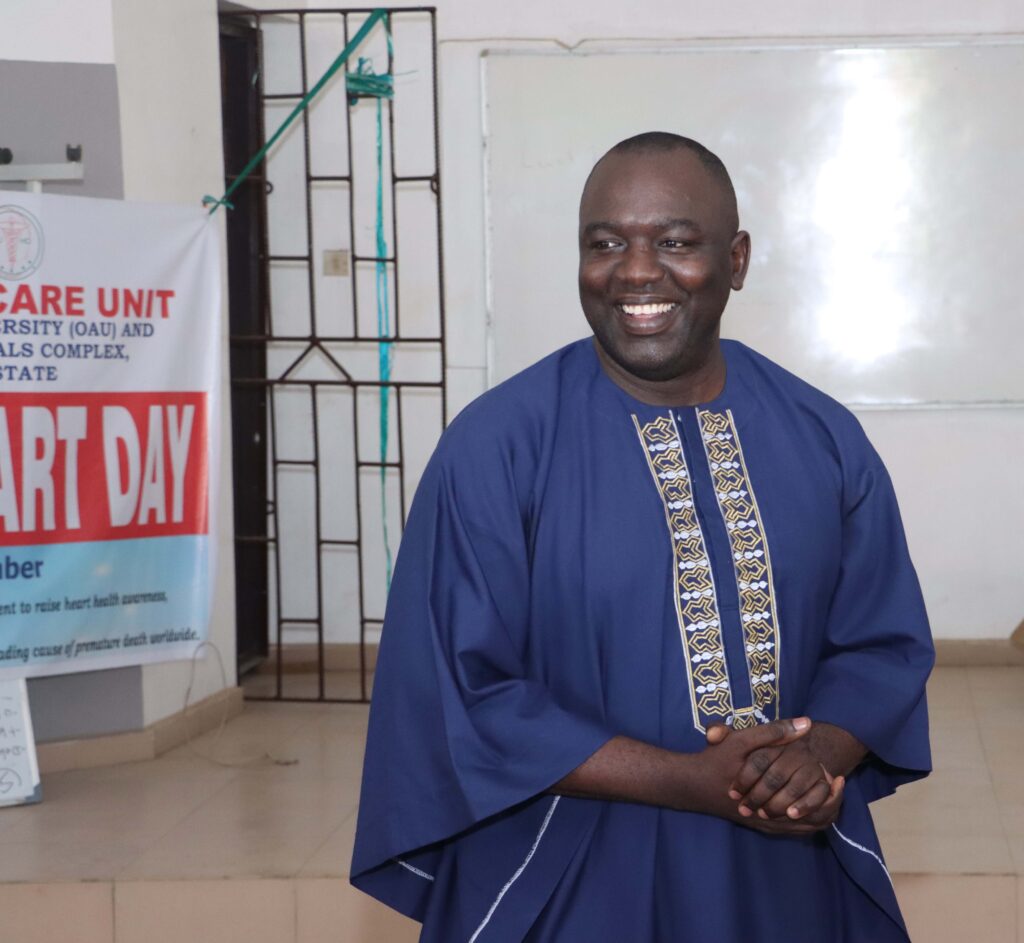
In closing, Prof. Razak Adebayo urged participants not to neglect their heart health. He reiterated the importance of this year’s theme by encouraging attendees to pay attention to their heartbeat, go for regular check-ups, and embrace healthy lifestyle choices.


